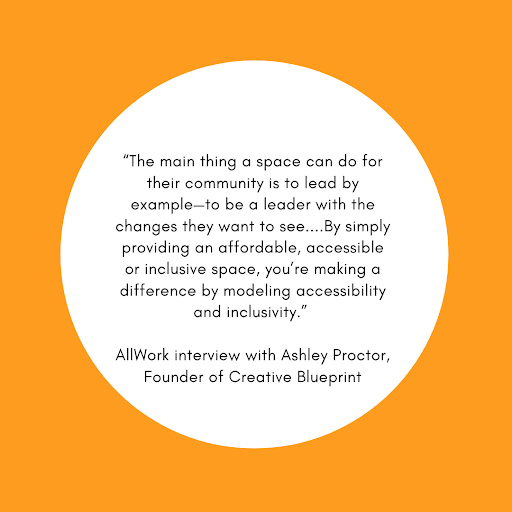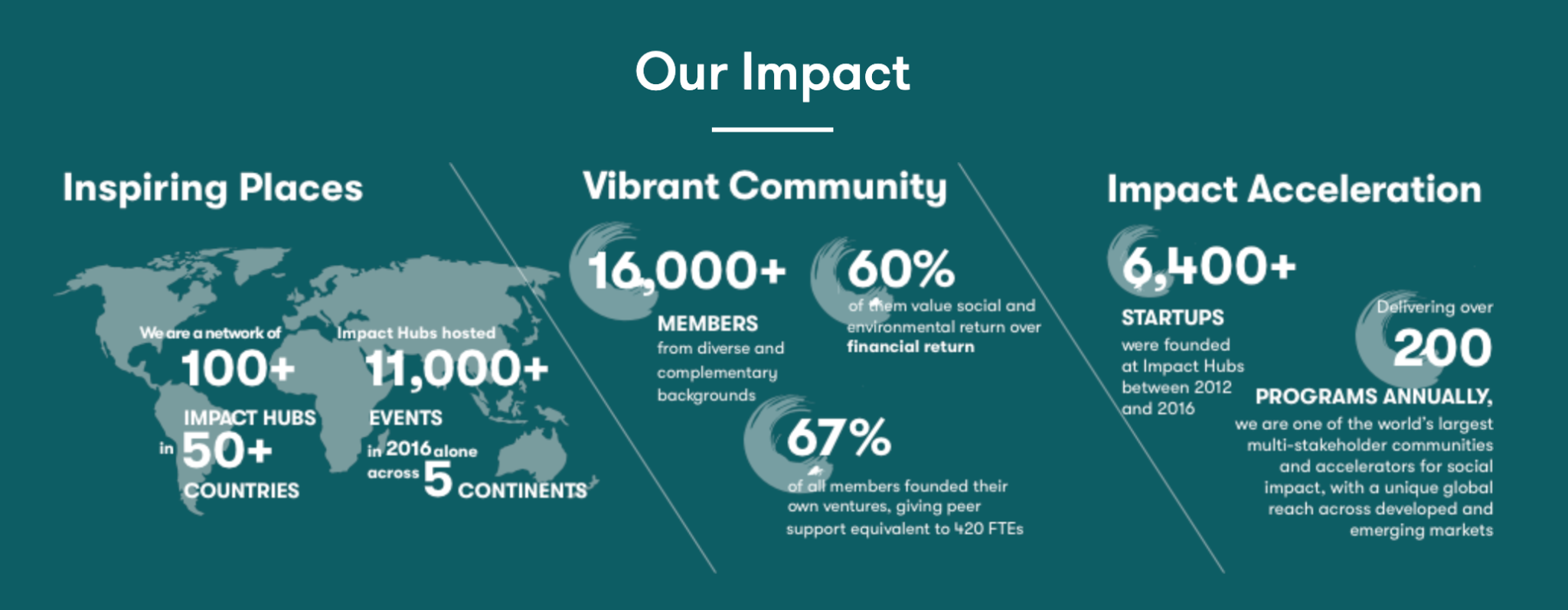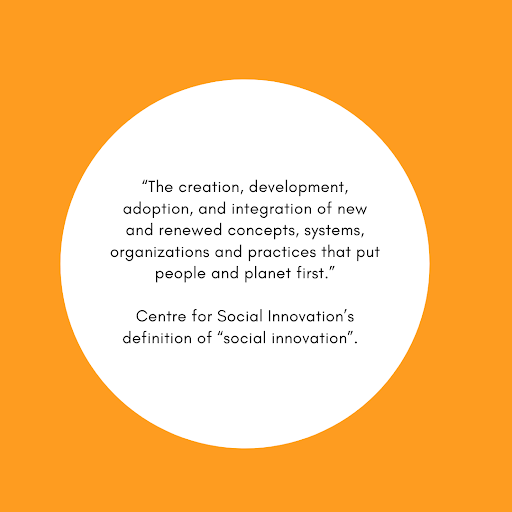5 Coworking Spaces Making A Difference Through Social Impact Initiatives
Coworking spaces transform the working lives of their members every day, helping them connect with others and grow their businesses. But every coworking space also has the power to have a positive impact on the neighbourhoods in which they reside.
Some are even making an impact on a global scale.
There are lots of interesting and innovative social impact coworking spaces out there today. We’ve selected five examples from around the world. Remember: any coworking space - however large or small - can be an instigator for positive change, as per the quote below!

1. JokkoLabs, seven hubs across Africa
JokkoLabs is a coworking and social change organisation with multiple locations across Africa. Its first location opened in Dakar, Sénégal on 10/10/2010. It’s since opened several hubs in seven countries, including in Mali, Burkina Faso, Ivory Coast, Cameroon, The Gambia and Morocco and The Democratic Republic of the Congo.
Inspired by techlabs, innovation hubs, coworking spaces, incubators and think tanks, the concept for JokkoLabs came from a “ the desire to fight inequality and find future solutions by exploiting the possibilities offered by information technology and collective knowledge.”
JokkoLabs is a not-for-profit initiative that “aims to identify and support the innovative ideas from entrepreneurs of the digital economy, cultural industries and medias in order to accelerate the competitiveness of nations and prosperity for all.”
2. Betterspace - based in London, UK
Betterspace is an affordable coworking space and incubator for purpose-driven social enterprises, entrepreneurs and freelancers. The venture is co-run with City, University of London and Islington Council, with the aim of supporting the local economy and helping residents gain access to career and enterprise opportunities.
As well as providing a physical space in which to work and learn, Betterspace offers mentoring programmes, business skills workshops and other educational events.
Meanwhile, in Camden, Camden Council recently announced that it’s collaborating with coworking operator LABS to open a fully funded coworking space for Camden business owners, with a focus on enabling underrepresented business owners in the borough to access the opportunities they need to grow.
The project will support 30 business owners over 3 years.
3. Impact Hub, Global
With centres in more than 100 locations, across five continents and in over 50 countries, Impact Hub is one of the best known coworking operators for social impact. It focuses on building entrepreneurial communities for impact at scale, and supports organisations and who create practical solutions to challenges.

The statistics speak for themselves! It’s no surprise that The United Nations Office in Geneva acknowledges Impact Hub as a driver of community engagement.
To find out what the global Impact Hub community is up to, head over to the blog. Here, you’ll learn about how Encounter Ghana is harnessing the power of entrepreneurship to rebuild the tourism industry and help the economy recover amid the COVID-19 pandemic. You’ll also discover how companies in West Africa like Direct Health and Waziki Health are working to improve the continent’s healthcare system.
4. Centre for Social Innovation - based in Toronto, Canada
The Centre for Social Innovation supports a growing community of social innovators that put people and the planet at the forefront of their vision. The operator works with a variety of businesses and nonprofits - all of whom are striving to solve some of the world’s greatest social and environmental challenges. CSI is home to 3,000 members across two locations, and has supported over 5,000 social impact organizations since it launched in 2004.
Every year, CSI publishes an annual report, which is a great place to start if you want to know what they’ve been up to. For instance, at the start of 2020, CSI and its affiliate charity, the Centre for Social Innovation Institute, launched Earth Tech, a new educational programme supporting those working on climate and water technology solutions that positively impact communities and ecosystems across Canada.

5. UnLtd - based in Mumbai, India
UnLtd India is an incubator for early-stage entrepreneurs. Its Incubation Programme offers 1:1 coaching, access to mentors and funders and the opportunity to learn from peers. The programme is split into three levels based on how far the idea has been developed. Support is personalised to cater to the individual's own unique journey and needs.
UnLtd India’s Theory of Change was born out of the belief that for social entrepreneurs to succeed, they need access to an ecosystem that can catalase their venture in its early stages. The focus is on early stage entrepreneurs (0-5 years) and members can access support for up to four years. 272 social entrepreneurs have received support to date.
Do you run a coworking space that’s making a difference on a local or global level? Or are you a social enterprise entrepreneur benefiting from the services of a coworking space?
Whatever your connection to the topic, we’d love to hear from you! Feel free to reach out to us on social media (scroll to the bottom of the page for links to our pages).
Related stories
Global Coworking Trends and Opportunities for 2025
Now well into 2025, the coworking industry continues to demonstrate strong momentum. With demand for coworking spaces remaining steady around the globe, it's clear that coworking is not just enduring—it's thriving. Let’s explore the major trends and opportunities shaping the global coworking landscape this year.
Creating Events that Drive Community Engagement in Coworking Spaces
Community is everything in coworking, but a genuine sense of connection between members doesn’t magically happen overnight or by chance. Often, meaningful relationships take intentionality, effort, and time to build, with events being an effective vehicle for bringing people together around shared interests, goals, and experiences, creating opportunities for collaboration, and a thriving coworking culture. This article looks at creating events that drive community engagement in coworking spaces.
Liz Elam: ‘Community is the number one amenity in coworking spaces’
A household name in the global coworking industry, Liz Elam, is the founder of one of the world’s best coworking event series: GCUC. Liz’s coworking roots began in 2010, when she established Link Coworking – a welcoming, affordable, and professional coworking space – in her hometown of Austin, Texas. Link Coworking achieved incredible success, expanding across three locations and becoming the fourth-largest coworking brand in Austin. It was sold in 2019, making Liz the first woman globally to exit a coworking brand.
Key Takeaways from the Coworking Alliance Summit 2025
Gathering online for the Coworking Alliance Summit last week, members of global coworking alliances, coworking spaces, and community leaders came together to navigate global issues, strengthen ties across the coworking industry, and work collectively towards future goals.
5 Ways to Reduce Noise in Open Offices & Coworking Spaces
Some people like working against a background of noise, while for others it’s their worst work nightmare. The truth is, our relationship with noise depends on our own preferences and the nature of our work.
Key takeaways from the Workspace Design Show 2025
London’s Workspace Design Show is undoubtedly one of the best coworking events of 2025. For one, the exhibition (held at Islington’s Business Design Centre) features a host of innovative and creative workspace design solutions tailored to the needs of modern workplaces.
What Is Workplace Management and Why Does It Matter?
There has always been a need for workplace management – the process of organising and optimising physical spaces, resources, and operations to support people’s needs. But, as 28% of UK working adults were reported to work in a hybrid capacity last autumn (by the Office for National Statistics), the question of ‘why workplace management matters’ is more critical than ever. Let’s look at the workplace management benefits for your operations.
10 Smart Goals for your Coworking Space: How to Set & Achieve Business Objectives
Coworking is synonymous with creativity, collaboration and productivity. Businesses and freelancers love coworking spaces because (by surrounding themselves with fellow workers) they’re more likely to achieve their goals. The coworking environment, while social, is set up to facilitate focused, distraction-free working.
The Best Coworking Events in 2025: Must-Attend Gatherings for Professionals
Managing coworking spaces is an all-encompassing role, often leaving operators, owners, and community managers with little time to focus on personal growth or draw inspiration from others.
10 Award-winning Coworking Space Designs: A Comprehensive Guide
Vibrant, contemporary workspaces create an undeniable ‘wow’ factor. Textured designs and ambient lighting make spaces feel warm and cosy, while natural elements and biophilic design features have literal mood-boosting properties.

